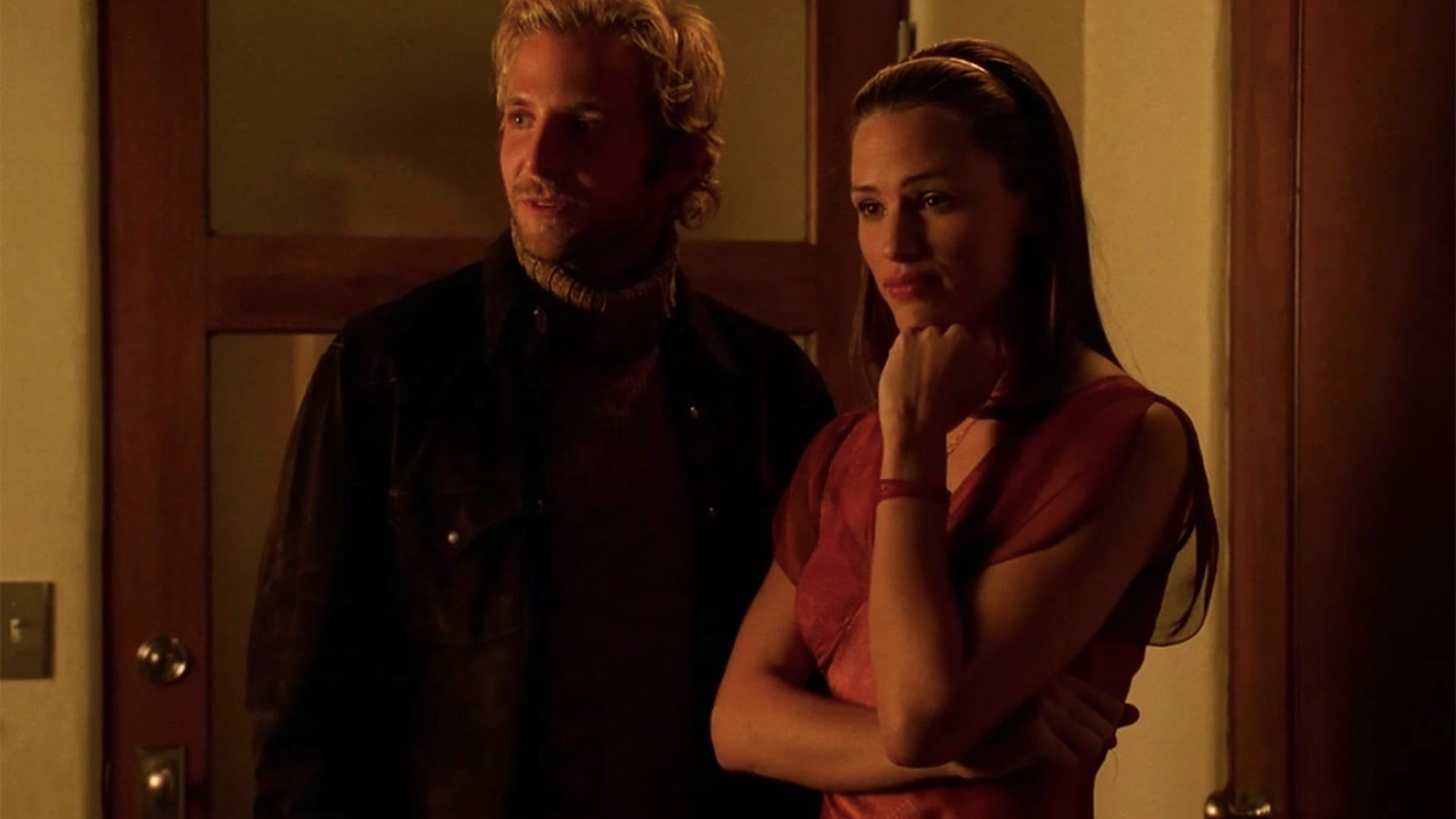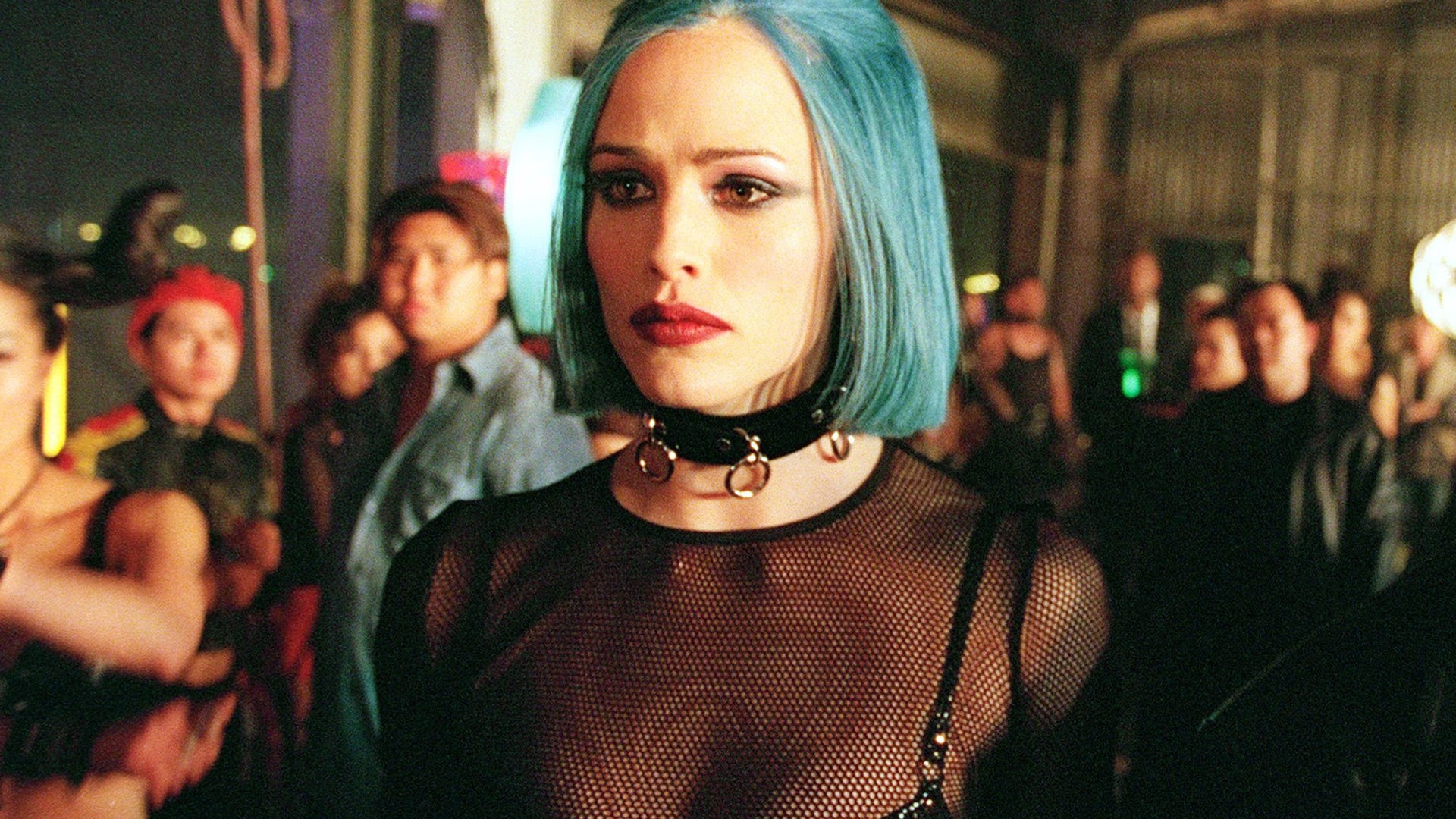Join or Sign In
Sign in to customize your TV listings
By joining TV Guide, you agree to our Terms of Use and acknowledge the data practices in our Privacy Policy.
You Should Watch Alias, Now More Than Ever
Jennifer Garner's star-making spy drama is now streaming on Amazon Prime
If there's one thing people need right now, it's Jennifer Garner hacking into a server while wearing a wig. Alias is here to help. J.J. Abrams' high-octane spy drama, which aired from 2001-2006 on ABC, has returned to streaming as of Monday: All five seasons are now available on Amazon Prime. Recommending Alias* feels a little like standing on a street corner handing out copies of my middle school diary (which was mostly about Alias), but if you're looking for an escape, you can't do much better.
*As a DVD purist I am morally obligated to point out that a lot of the music is different on streaming due to licensing, but I'll accept people watching Alias in any form.
I should start by attempting to explain the premise of Alias, which is impossible. In five seasons the series barreled through about 25 seasons of plot. Garner's Sydney Bristow, a grad student who also happens to be a double agent for the CIA, crosses the world multiple times per episode doing serious spy business. She speaks countless languages! She wears wild disguises! Meanwhile, she's got midterms! There's also a convoluted mythology about a 15th century philosopher named Milo Rambaldi, whose work was 500 years ahead of his time, whose cult-like followers are devoted to assembling his inventions, and who prophesied [REDACTED]. Even the cast had no idea what was going on in the Rambaldi storyline. But what does logic matter when there's a series-altering fight scene that hinges on the line "Francie doesn't like coffee ice cream"?
Alias: The Hilarious Story Behind Jennifer Garner's Iconic Red Wig
I'm obsessed with the fact that Alias began with J.J. Abrams daydreaming about how it would be fun if Felicity from Felicity turned out to be a secret spy. Alias is the bridge from the turn-of-the-millennium warmth of Abrams' first TV show to the epic science-fiction puzzles that have become his trademark. The show plays with sci-fi concepts, but it's at its best when it just feels like Felicity, But She's a Spy This Time (a prophecy that would later be fulfilled by Keri Russell's turn in The Americans). Sydney has the girl-next-door home life of a 2001 rom-com heroine; one of her best friends is played by Bradley Cooper with ridiculous blond highlights. And she loves that side of her life; espionage is just a means to an end. In her mid 20s, Sydney is already disillusioned by the endless cruelty of her cool, important job. She only grits her teeth and goes to work so that everyone else can have the kind of "normal" life she can't. To some extent, the point is that no one's life is normal, but I appreciate that the show's idea of a fantasy existence isn't being a spy; it's being a hot young adult in Los Angeles in the early 2000s, hanging out with your other hot friends and playing Boggle by the fire.

Bradley Cooper and Jennifer Garner, Alias
And yet it's the also the character work that makes Alias a timely watch in 2020. Sydney's struggle is to find community in the midst of a solitary experience. As a spy, and especially as a double agent, she has to keep parts of her life walled off from the people she cares about, not only for her protection but for theirs. The distance she keeps isn't physical -- it's a matter of what she can and can't say -- but the loneliness of Sydney's work is still bruising. At the risk of over-identifying, what hits me right now about the show is how well it taps into the strain of being isolated from friends in order to keep them safe, and how counterintuitive it feels to have to love someone by pulling away.
On Alias, as in life, everything is personal. The spy drama, especially in the early seasons, exists to heighten the emotional stakes in Sydney's relationships. The heart of the series is the push and pull between Sydney and her father, Jack (Victor Garber), easily one of the richest father-daughter relationships on TV. Jack is a tragically restrained figure, and Garber is so subtle and so bottled up in such an over-the-top environment that he gives the whole show authority. At its height, the family drama in Alias is exquisite: It's a blend of repression and extreme expression, which can be as fun as it can be painful.
A lot of J.J. Abrams' work is about affirming the importance of vulnerability. Emotion is a strength, even in a field where empathy is easily exploited. If that seems like a simplistic message, I'd argue Alias isn't trying to moralize about emotion, just celebrate it. I remember the switch that flicked in me, age 14, watching a scene in the Season 3 premiere: Sydney's CIA handler, Vaughn (Michael Vartan), asks how she's doing (not well). I expected her to lie for his comfort -- is this not how women are trained to minimize ourselves? -- but she didn't. Alias never makes Sydney say she's fine when she isn't. The show embraces the transformative power of her anger and her grief. It's a spy drama that just wants honesty.

Jennifer Garner, Alias
Mitch Haaseth, ABC via Getty Images
In my latest rewatch, I've been thinking a lot about the honesty of Sydney Bristow in contrast with her manipulative boss, Arvin Sloane (Ron Rifkin). Sloane's motives are complicated and can even be sympathetic, but rather than apologize for him, Alias condemns him even more for the way he weaponizes his weaknesses in order to get what he wants. Sloane is one of the most interesting villains on TV because the most tragic thing about him and the worst thing about him are the same: his willingness to betray his own humanity. As a man who regularly asks for unearned forgiveness, he might even be a more potent character now than he was when the show first aired.
Discover your new favorite show: Watch This Now!
My favorite summary of Alias comes from Carl Lumbly, who played Sydney's partner, Marcus Dixon. "It was about so much other than the chases and the searches and the technology and the frames and the jumping and the running," Lumbly said, speaking to TV Line for the 10th anniversary of the show's finale. "It was really about people trying to help one another get home at night, and imagining that they were trying to do that for a lot of people that they didn't know and see." There's a tremendous scope to Alias' compassion. The characters save each others' lives and the lives of people they'll never meet, but it plays less like the show is putting them on a pedestal and more like Alias just understands that everyone alive is connected.
It's no secret that Alias peaked in its first two seasons; that's what happens when you rocket through plot at top speed. But the same thing that hurt the show's longevity is what made the early years so great: Alias was never afraid to redefine itself. The pilot alone -- and I'll go to the mat for the Alias pilot as J.J. Abrams' best -- changes the rules of its own game at least three times. Whatever you already know, or don't know, about the show's legendary twists, it can't dilute the sheer go-for-broke joy of watching Alias when it's firing on all cylinders. Plus, I cannot emphasize this enough: The show could have no plot and it would still have Victor Garber.
Alias Seasons 1-5 are now streaming on Amazon Prime.

Alias
Kevin Foley, ABC via Getty Images